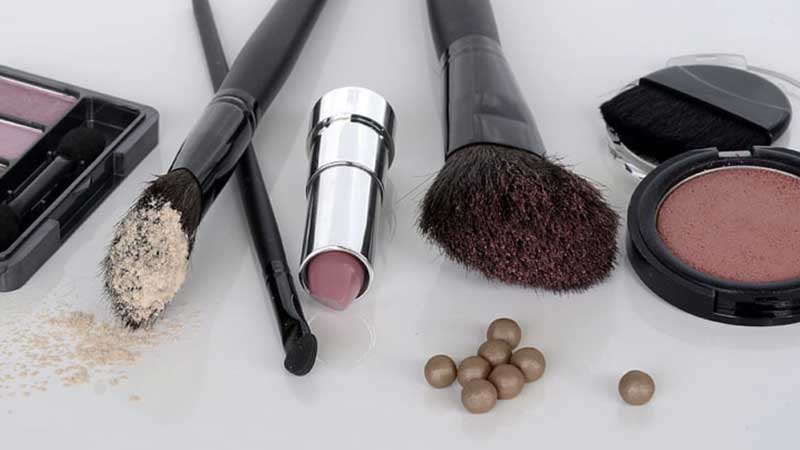🧑🔎⚕️ The Toxicity of Beauty Products Under the Microscope - A Research Team Is Conducting a Study on The Health Of Beauty Care Professionals Across Quebec 💄💅
Saturday, 20 April 2024 12:00.PM
A team from the Institut national de la recherche scientifique (INRS) is leading a study that could help better protect women who handle products with potentially harmful effects on a daily basis. This research, conducted in collaboration with researchers from UQAM and Health Canada, is funded by the Institut de recherche Robert-Sauvé en santé et en sécurité du travail (IRSST).
It is no longer contested that shampoos, conditioners, dyes, varnishes, and makeup can present health risks for the people who use them. Why? Because these substances contain synthetic molecules that disrupt our endocrine system, and therefore how our hormones work.
But what about the people who handle these types of products on a daily basis as part of their job? Are they more affected by this problem? If so, how can they be better protected?
These are the questions being investigated by Professor Isabelle Plante, a toxicology specialist at INRS's Armand-Frappier Santé Biotechnologie Research Centre who has been studying endocrine disruptors for many years. She is also director and co-founder of the Intersectoral Centre for Endocrine Disruptor Analysis (ICEDA).
"When they enter the body, endocrine disruptors interfere with our hormones in a number of ways, disrupting their communication," explains Professor Plante. "This can lead to a range of health problems related to development, fertility, and pregnancy, as well as an increased risk of breast cancer."
High exposure
When it comes to endocrine disruptors, the researcher is particularly concerned about women working in the world of beauty care, for two reasons. The first is that they can be exposed to high levels in their profession due to the amount of hair and beauty products they handle. The second is that they are exposed to a wide range of products containing multiple disruptive molecules. When combined, these different molecules could interact with each other and cause other undesirable effects— like drugs that should not be prescribed simultaneously to a patient, in a way.
In addition to the risk factors associated with the use of hair and beauty products, other issues can affect the health of women working in this field, such as work precarity, difficult access to preventive maternity leave, and lower incomes.
"The accumulation of these sources of risk could lead to inequalities in occupational health, especially since these positions are often held by women from visible minorities or racialized groups," explains Professor Plante.
By better understanding these workers' circumstances, we will be able to tackle inequalities and provide them with better protection.
"The results of our research will enable us to raise awareness among personal care workers of the potential hazards associated with the cosmetics they use in their work environment. In fact, it was the possibility of making direct links between our laboratory analyses and the health of workers that prompted me to make this research project my Master's subject", Marie-Caroline Daguste, a Master's student in experimental health sciences in Professor Plante's laboratory.
Making your voice heard
Participant involvement is essential to achieving the objectives of the study.
Study objectives:
• Recruit 500 women from across Quebec;
• Women who are hairdressers, makeup artists, and/or beauticians;
• Women that work in another field entirely, who will serve as a control group.
What will participants be asked to do? They will start by answering an online questionnaire. In a second phase, if they want, participants can provide a urine sample that will be used to assess their exposure to endocrine disruptors and carry out other toxicity laboratory experiments.
The researcher hopes that her findings will provide leads for prevention and intervention measures to reduce the potential impact of jobs in beauty care on women's health.
The study will go even further, looking at the health of their children.
"The harmful effects of exposure to endocrine disruptors are passed on from one generation to the next. By focusing on the health of beauty care workers, we also aim to better protect the health of their children and grandchildren," concludes Professor Plante.
About the project
The project was approved by the INRS Research Ethics Board (CER-22-682, 2022-10-17). To take part in the study, click here.
This research is being carried out by Professors Isabelle Plante (Principal Investigator), Cathy Vaillancourt, Géraldine Delbès and Professor Kessen Patten of INRS, in collaboration with Mathieu Philibert and Joanne Saint-Charles of UQAM and Yong-Lai Feng of Health Canada.
SOURCE: Institut National de la recherche scientifique (INRS)
-
Related materials:
- 01-Feb-2026 12:00 PM 🍁💵 🧑🔎 Ontario Connecting Ring of Fire with New Transmission Line
- 01-Jan-2026 12:00 PM 🧑🔎🚗 Canadians Call for s New Automotive Strategy to Build Canada Strong: New KPMG Canada Survey
- 02-Dec-2025 04:27 PM 💼📊Oxfam And CSN File Complaint with OECD Against Amazon for Québec Warehouse Closures
- 26-Nov-2025 03:52 AM 🍁🏙️💼📊 Ontario Investing $2.6 Million to Help More Youth Gain Experience in the Skilled Trades
- 25-Nov-2025 02:33 PM 🧑🔎 Government Adds 950,000 Jobs Since 2015, Accounting for 30% of Total Employment Growth In Canada
- 25-Nov-2025 12:00 PM 🧑🔎 Government of Canada seeking input on improving youth employment
- 19-Aug-2025 04:33 PM 🧑🔎💻 61% of Cybersecurity Professionals Plan AI Adoption as Manufacturing Faces Growing Cyber Risks 💵
- 19-Aug-2025 10:11 AM 🧑🔎💻 Majority of Canadian Workers areOoptimistic About AI but aren't Ready 🖱️👆
- 18-Aug-2025 12:00 PM 🍁👪 Immigrants in Europe and North America earn 18% less than natives on average 🧑🔎💵
- 12-Jul-2025 12:00 PM Upcoming Event: 🧑🔎 Canada's Premier Virtual Career Fair for Environmental Professionals Returns September 25, 2025 💵
